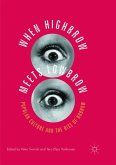This book introduces Elite Theory to the literary study of class as a framework for addressing issues of the nature of governance in political fiction. The book describes the historical development and major tenets of Elite Theory, and shows how each of four post-war Washington novels-Gore Vidal's Washington, D.C.; Allen Drury's Advise and Consent; Joan Didion's Democracy; and Ward Just's Echo House-illustrates the way class-based political elites exhibit forms of "ruling-class consciousness" and maintain their legitimacy in an ostensibly democratic form of government by promoting themselves as models of behavior, promulgating an ideology that justifies their rule through their control of the media, and accepting new members from the lower classes. Reading these novels through a socio-political lens, David Smit offers suggestions for ways to work for a more just and equitable society in light of what this analysis reveals about the "culture" that produces our political elites.








